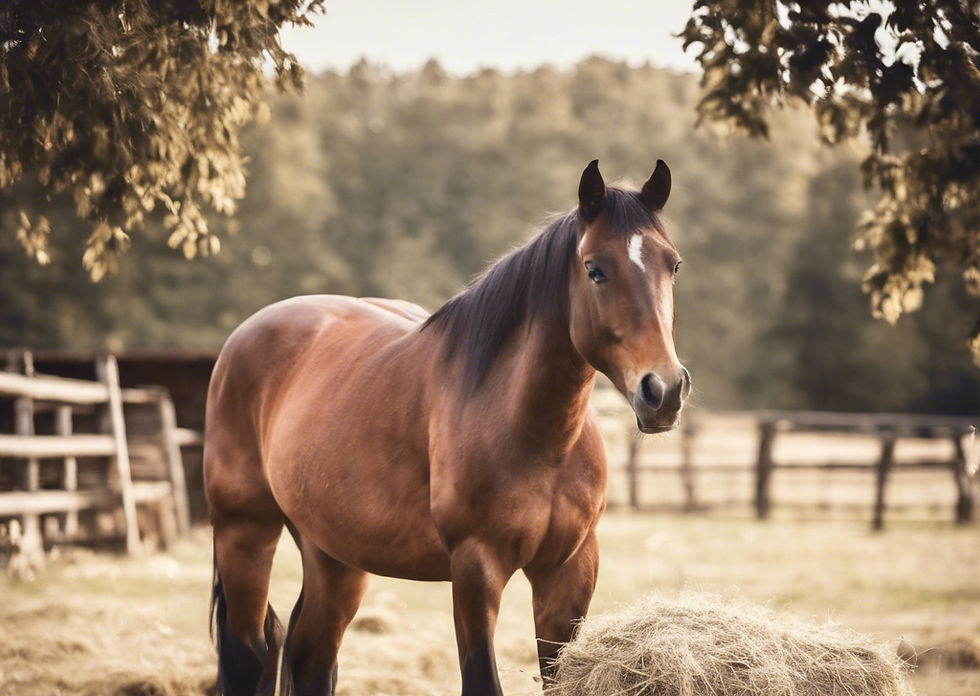From Hooves to Canvas: How Horses Inspire Art and Creativity Through the Ages
- Jane Guard
- Feb 26, 2025
- 2 min read
Throughout history, horses have been a profound source of inspiration in art, symbolizing power, grace, and freedom. At Canvas & Hooves, we celebrate this enduring bond by offering unique experiences that blend equestrian connection with artistic expression.
Horses in Art: A Historical Perspective
In the UK, the depiction of horses in art has a rich heritage. Artists like George Stubbs and Sir Alfred Munnings are renowned for their equestrian paintings. Stubbs's masterpiece, Whistlejacket (c.1762), captures the majesty of the horse in stunning detail. Munnings, active in the early 20th century, was celebrated for his depictions of horses and equestrian life.

These artists not only showcased the physical beauty of horses but also highlighted their integral role in British culture and society.
The Therapeutic Impact of Painting with Horses
Engaging in artistic activities alongside horses offers therapeutic benefits. Programs like Art + Horses combine painting and equine interaction to promote emotional healing and self-expression. Participants design symbols of strength and inspiration, painting them onto horses, which fosters a calming and reflective experience.
This fusion of art and horsemanship can enhance emotional well-being, reduce stress, and build a sense of community.

Canvas & Hooves: Bridging Art and Equestrian Connection
At Canvas & Hooves, we provide a space where individuals can explore their creativity in the company of horses. Our programs include:
Guided Painting Sessions: Participants create art inspired by their interactions with horses.
Equine-Assisted Workshops: Combining horsemanship and artistic activities to promote personal growth and creativity.
These experiences aim to deepen the connection between humans and horses while nurturing artistic expression.
Creating Horse-Inspired Artwork: A Step-by-Step Guide
Observation: Spend time with horses to understand their movements and personalities.
Sketching: Begin with basic sketches to capture the horse's form and posture.
Choosing a Medium: Select your preferred medium—be it oil paints, watercolors, or charcoal.
Composition: Decide on the setting and context for your artwork.
Final Piece: Bring your vision to life, paying attention to details like muscle structure and expression.
By following these steps, you can create art that reflects the beauty and spirit of horses.
At Canvas & Hooves, we believe that the union of art and horses offers a unique pathway to creativity and connection. Whether you're an experienced artist or new to both realms, our programs provide an opportunity to explore this inspiring fusion.
_________________________________________________________________________
George Stubbs and Equine Art History
Art UK. Alfred Munnings: The Delight of Painting Horses. Retrieved from: https://artuk.org/discover/stories/alfred-munnings-the-delight-of-painting-horses
The Therapeutic Impact of Painting with Horses
Indiana University News. Art + Horses Program Helps Indiana Veterans Mend. Retrieved from: https://news.iu.edu/live/news/32002-art-horses-program-helps-indiana-veterans-mend
Historical Equestrian Artwork
The National Gallery. Whistlejacket by George Stubbs. Retrieved from: https://www.nationalgallery.org.uk/paintings/george-stubbs-whistlejacket
The Role of Horses in British Culture
The British Museum. Horses in Art and British Heritage. Retrieved from: https://www.britishmuseum.org/collection/object/P_1854-0214-3




Comments